A Q&A with Stacks Web3 Startup Lab Founder, Albert Liang
by Claire Topalian on July 28, 2022

Albert Liang is the Founder of the Stacks Web3 Startup Lab, a venture that includes a 2-month “bootcamp-style” pre-accelerator for Web3 startups. In our discussion below, we talk about Albert’s vision for the pre-accelerator program, hear about his observations coming off of the first cohort’s 9-week immersion (and upcoming Demo Day), starting a company as a Web3 founder versus a Web2 founder, and more.
- Claire:Hey Albert, it's been great having you working with us to support entrepreneurs in the Stacks Ecosystem. Could you tell us a bit more about the Stacks Web3 Startup Lab?Albert:Trevor and I go back many years. Previously, I turned my consultancy into a pre-accelerator in China with over 21 cohorts. He approached me because he was overwhelmed by applications for the Stacks Accelerator program but noticed that many of the teams weren’t quite ready for that type of immersion. This problem catalyzed the pre-accelerator concept.
The pre-accelerator is meant to help with early groundwork. Who are your customers, what are their pain points? Creating a proof of concept. Validating a startup idea that really leverages blockchain, Stacks and Bitcoin. Making sure you’ve created something valuable and worth scaling in the Web 3.0 space. The program also gives you time to build your team. Without a team, you can’t really grow fast. Anything you need to succeed in an accelerator, the pre-accelerator gives you the tools to do that.
It’s really a bootcamp, and it’s very science-based. We have them work with other people outside of their teams. That type of learning is impossible just with you and your team. We want to give them a much more well-rounded toolset and experience. This translates into more resiliency to hardship, since they’re in a community, but also ability to avoid more pitfalls and also most importantly the trained ability to rapidly improve oneself to overcome unforeseen challenges that all entrepreneurs encounter on their startup journey. - Claire:Can you tell us about your vision for the programs overall?Albert:We hope that next year we’ll have a pace/stride of 100 new startups every 4 months into the pre-accelerator to create a healthy pipeline. 100 new startups coming in 3x / year will result in 300 startups in 2023. Those founders will also raise money, and if they raise, say $1M piece, that is $300M going into the Stacks ecosystem.
- Claire:Over the course of the 9-week program, have you had any observations that surprised you, or that characterize the program?Albert:We originally wanted to have 10 teams join, but we ended up with 25. There’s so many talented people building. This program is so rigorous - often 20 hours per week. Many people are working weekends and transitioning from their “day jobs” to full-time entrepreneurship. Through this process, people get to know themselves a lot better. They get real-life experiences that test readiness for the mental load of being an entrepreneur.
Over the course of the time, there’s usually 2 camps of people: one gives up, and one proves to themselves that they have the grit to move forward. With the latter group, there’s 2 more camps: the camp that succeeds with what I call goal-oriented self-efficacy. The mental flexibility to adapt themselves to a startup environment. They might have to learn marketing, Clarity, talking to customers…and they just figure it out. These are the ones who do the best. People who want to become entrepreneurs need to have the ability to change themselves in difficult situations.
So often people get stuck on what they are imagining to be a problem. Others say, “let’s just try it” and they adjust as needed. Those habits form once we start school…watching kids before they go to school, they’re so flexible. They will try anything. Once we start going to school, the more rigid and fearful we become. Everyone is born with creativity and innovation and flexibility. It’s how we survive. My long-term dream: I want to take the creative aspects of startup models and bring it into the school system. Collaborating in a group, rather than individual testing and metrics. Scoring should be on how well people work together to create novel solutions for world problems. Maybe once we onboard 1,000 startups into the ecosystem I’ll switch over to this goal. - Claire:Any differences you’ve noticed between helping Web2 founders versus Web3 founders?Albert:We do have a strong lean startup component in there. It’s like a dual track. The lean startup is the background of any startup. But then we’re given a series of talks - 25 talks - from speakers who have built something on Web3. First hand experiences about pitfalls…they are breaking down their inertia and mindset from Web2. Most of us are still in a Web2 mindset, even though we’re working in Web3. Web2 is centralized versus decentralized - the schools that we go to are centralized, our government is centralized, even many of the apps we use are still centralized. Everything we know is Web2. So these talks and discussions are designed to deconstruct everything we’ve learned and re-build with Web3 case studies and ideas. On top of all this, we’re applying the lean model. The pre-accelerator allows teams to acclimate to Web3, which is another huge benefit for teams. We want to give them the chance to have a supportive environment and the time and tools and resources to re-invent themselves for Web3.
- Claire:Tell us more about the Web3 Startup Lab Demo Day event taking place this SundayAlbert:We will have standard 5-minute pitches for attendees, but with some more explanation around how Blockchain/Stacks/Bitcoin is leveraged to create a novel solution and business models for existing problems. It’s all about condensing the 9-week program learnings into one pitch. There may be some early-stage investors, but this will be a closed-room event. We’ll have about 20-something mentors in attendance - people who have shared during the 9 week program, and Stacks Foundation community members. The teams also often invite family members and friends. It’s very private compared to accelerator pitch events.
- Claire:What's next for teams after the event?Albert:After this event, the teams will be interviewed about a month later before they are admitted into the accelerator. This allows them to do more foundational work so they’ll be stronger before going into the Stacks Ventures Accelerator - which will begin in October tentatively.
Drop in your email to stay in the loop on Stacks Foundation news



